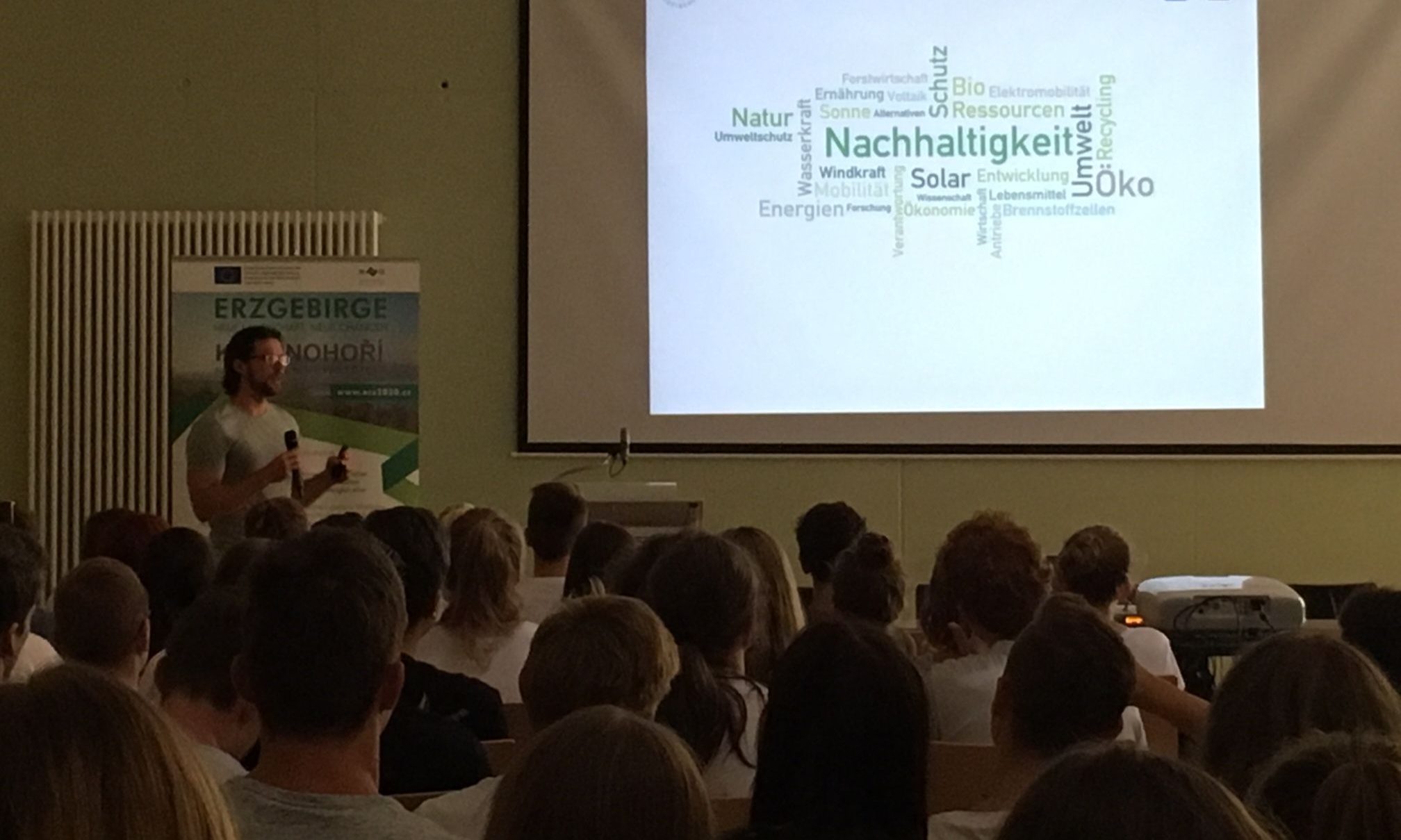Plastics have become an essential part of our lives. The packaging of our food is made of it just like everyday objects such as smartphones, cars and clothing. They are incredibly flexible in their application and also have useful properties: light, malleable, stable, waterproof and comparatively cheap. But we buy these big advantages at the expense of our environment.
Not only that a lot of CO2 is produced in the production of plastic, which accelerates climate change due to the greenhouse effect. Large quantities of plastics also end up in the environment, where they pollute seas and landscapes. But how do we get out of the plastic crisis without having to completely ban plastics?

Precisely on this topic, process engineer Florian Keller gave a lecture to pupils in the 8th and 10th grade at the Gymnasium Marienberg on November 13th, 2019. The students learned a lot about plastic waste and how it has been handled so far. He also presented the research field of chemical recycling: Here, waste that has been incinerated and thus emitted large amounts of CO2 can be processed into new products.
